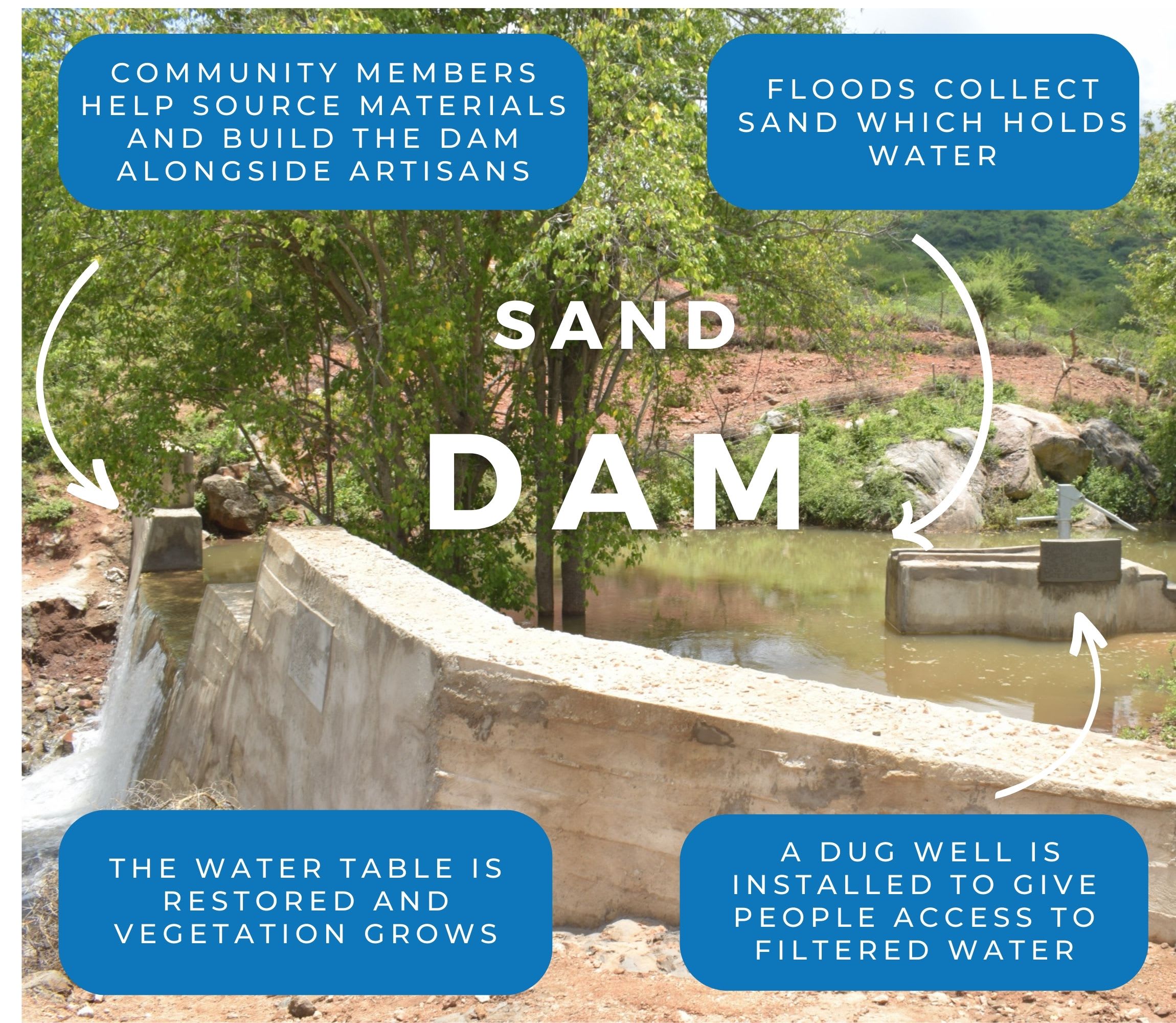The average day for the 1,830 people living in Kithalani, Kenya, begins at 6:00 am when the women and children wake up to fetch water. The main water source here is the Kithalani and Tyaa rivers. People travel between one and two miles to reach the rivers. Then, they dig scoop holes in the river bed to fill their containers with water.
The scoop holes are open water sources shared by human beings and livestock including cows, goats, and donkeys because of their proximity to grazing fields.
A majority of community members in this locality rely on small-scale farming for domestic needs. They grow crops such as maize, cowpeas, pigeon peas, and green grams, relying on natural rainfall to water their crops. Many others have also invested in rearing goats and cows, with the scale depending on the size of their land.
"For many years, water has been a challenge to our community. We majorly rely on scoop holes that have provided us with unsafe water for family consumption," said Pius Kyalo, a farmer in the community.
When the containers are full, the women and children walk home. For most families, it takes an hour to fetch water. Oftentimes, the morning trip to fetch water is not the only trip of the day.
"Fetching water in our community has always been a full-time affair which has to be done daily due to a lack of reliable water sources. Especially for us women, who are traditionally tasked with the work, it is such a tedious task, but we always have limited options," shared Angelina Kimanzi.
During the day, the women wash their families’ clothes, tidy the house, wash utensils, and prepare lunch for the family. Depending on the size of the family and water needs, many women and children may be required to travel back to the water source multiple times to get water for their use at home.
"At my home, my wife and children almost go to fetch water daily, which really takes up most of their time," Pius said.
What We Can Do:
Our main entry point into Kithalani Community has been the Lenza Mukuyuni Self-Help Group, which is comprised of households that are working together to address water and food scarcity in their region. These members will be our hands and feet in constructing water projects and spreading the message of good hygiene and sanitation to everyone.
Sand Dam
After the community picked the ideal spot, our technical team went in and proved the viability by finding a good foundation of bedrock. Now, our engineers are busy drawing up the blueprints.
We are unified with this community to address the water shortage. As more sand dams are built, the environment will continue to transform. As the sand dams mature and build up more sand, the water tables will rise. Along with this sand dam, a hand-dug well will be installed to give community members an easy, safe way to access that water.
Building this sand dam and the well in this community will help bring clean water closer to hundreds of people living here.
Training
These community members currently do their best to practice good hygiene and sanitation, but their severe lack of water has hindered reaching their fullest potential.
We will hold hygiene and sanitation training sessions with the Lenza Mukuyuni Self-Help Group and other community members to teach about important hygiene practices and daily habits to establish at the personal, household, and community level. This training will ensure that participants know they need to make the most out of their new water point as soon as the water is flowing.
One of the most important topics we plan to cover is handling, storing, and treating water. Having a clean water source will be extremely helpful, but it is useless if water gets contaminated by the time it is consumed. We will also emphasize the importance of handwashing.
The community and we strongly believe that all of these components will work together to improve living standards here, which will help to unlock the potential for these community members to live better, healthier lives.
We typically work with self-help groups for three to five years on multiple water projects. We will conduct follow-up visits and refresher training during this period and remain in contact with the group after all of the projects are completed to support their efforts to improve sanitation and hygiene.

 Sand Dam
Sand Dam
 Rehabilitation Project
Rehabilitation Project

































